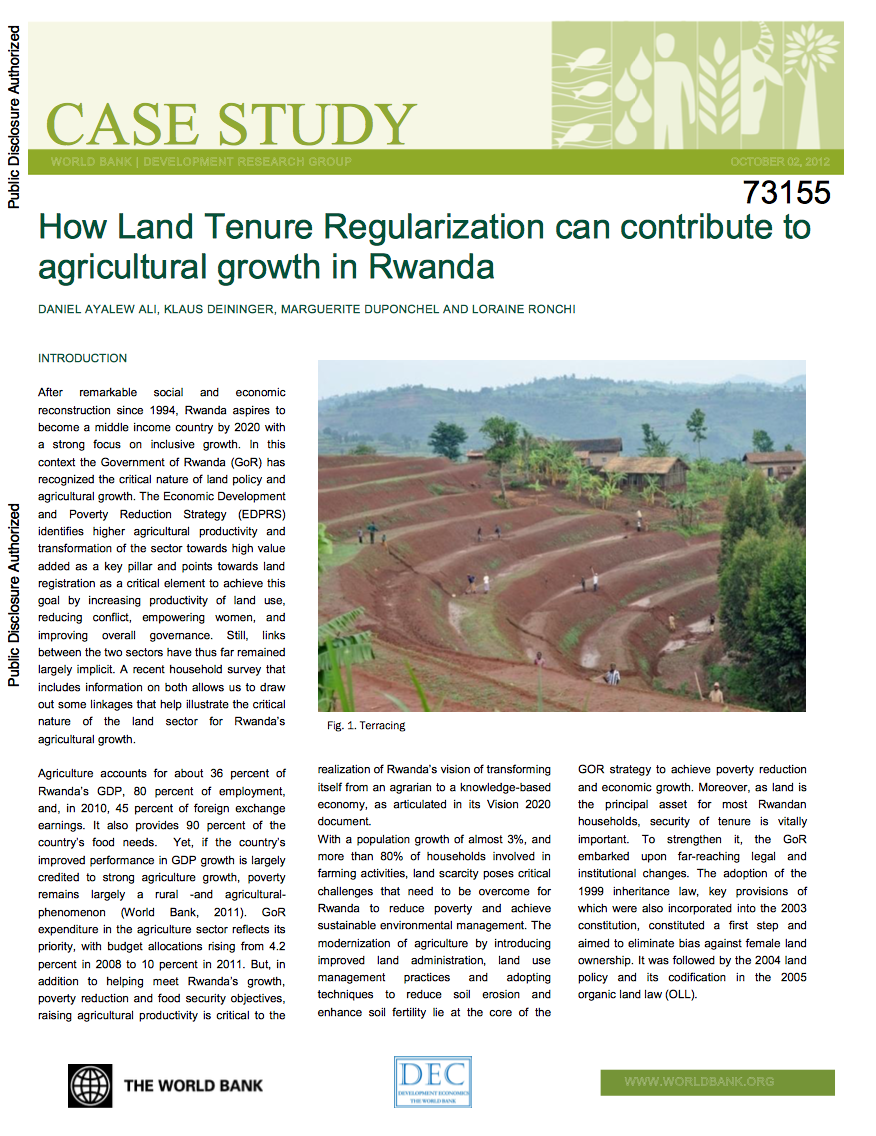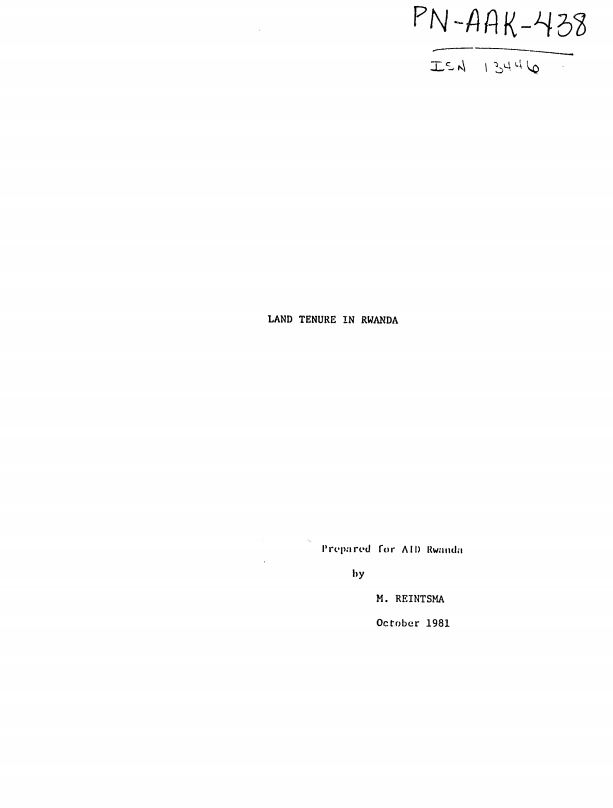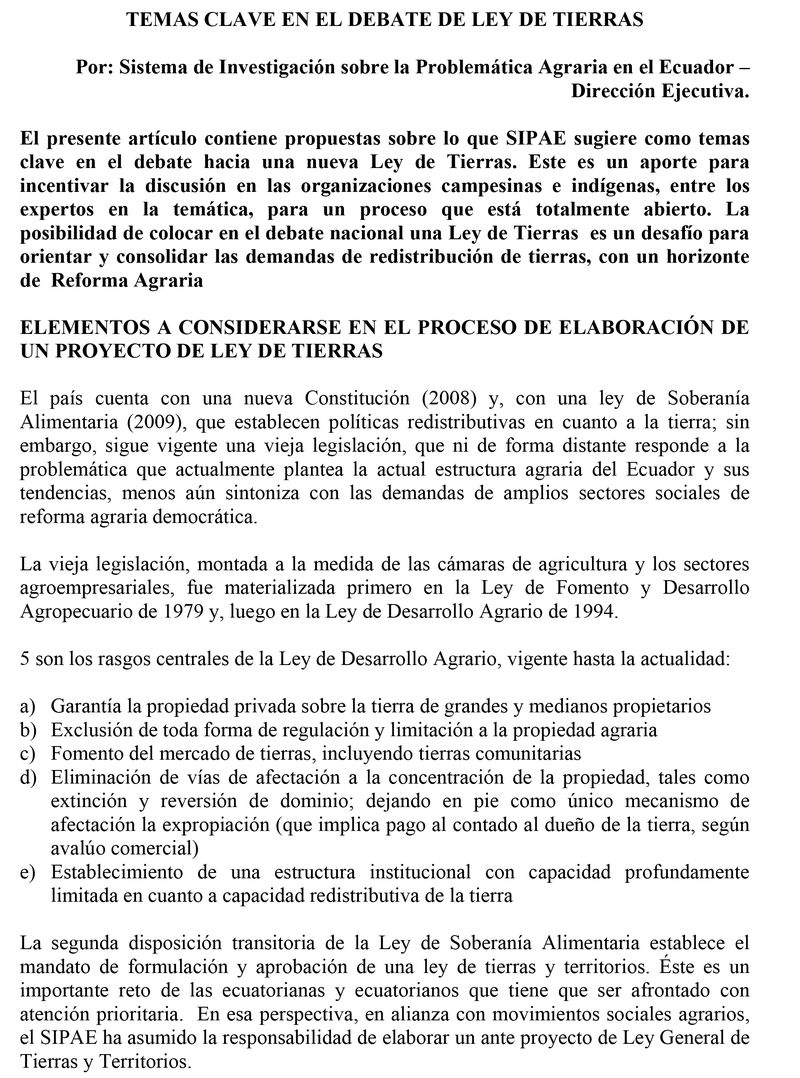How Land Tenure Regularization Can Contribute to Agricultural Growth in Rwanda
After remarkable social and economic reconstruction since 1994, Rwanda aspires to become a middle income country by 2020 with a strong focus on inclusive growth. In this context the Government of Rwanda (GoR) has recognized the critical nature of land policy and agricultural growth.






